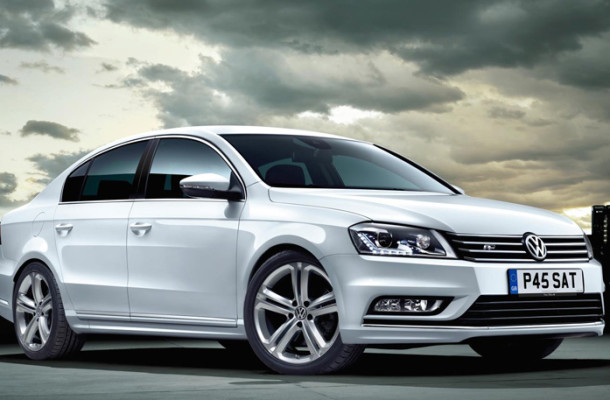Nepotism Claims in Nairobi Traffic Marshals
The competence of recently recruited traffic marshals has come into question...

Does petrol power work in a Passat?
It’s certainly quick enough. With a maximum of 158bhp on tap, and the full 185lb ft available from just 1500rpm, the 1.4-litre Passat hits 62mph in a commendable 8.5sec. In-gear grunt is strong too – the Passat’s 1.6 TDI variant has exactly the same torque output and only 103bhp, and is consequently 3.7sec slower to 62mph. Three-point-seven! If you want to outstrip the green pump-sipper, you’ll need the 2.0 TDI.
The claimed fuel consumption is a far from outlandish 45.6mpg, but with the diesel able to score a real-world average some 10mpg higher (and emitting 30g/km fewer than the 1.4 TSI’s 144g,) it’s the cheaper car to run for both fleet and family buyers.
So, the petrol is destined to remain a bit-part player. However, the rest of the Passat, even in its old age, is as smart and foolproof as ever.
Isn’t it a bit, well, boring?
This is a Passat with its race overalls on. Or, at least, a branded T-shirt. The R-Line spec smartens up the Passat’s act with a new front bumper and lower chin spoiler, plus a brash R badge on the grille in the style of the Golf R and Scirocco R hot hatches. Except, there’s no hot ‘R’ version of the Passat any more, so it’s not as if you’re aping a 300bhp touring car for the road here…
The car rides on attractive 18inch alloy wheels, and completes its ‘grrR-design’ makeover with new side skirts and a new rear bumper too. It keeps the Passat looking fresh – and given how many S-line Audis and M Sport BMW roams the motorways of rep-dom, pushing the R-Line angle of the Passat’s repertoire isn’t a bad idea from VW.
Inside, the Passat is missing the latest flush of lush switchgear from the Mk7 Golf, and that car’s sensual steering wheel, but it’s still a clean, logically designed and solidly constructed cabin that a Martian could descend into as its first encounter with a motor vehicle and still find user-friendly.
And what about the drive?
As we’ve said, the petrol engine pulls gamely and offers a wide band of power to exploit – plus there’s the benefit of less weight over the nose. This Passat weighs 1471kg – 81kg less than the 2.0 turbodiesel, thanks to the engine switch. So, the feedback-free but precise, consistently weighted steering has a less nose-led tendency. Plus, the car doesn’t squat quite so much through compressions in the road surface, where the diesel has to brace itself and catch the sump before it smashes into the ground.
The Passat has never been a car that puts dynamics first – those looking for such a machine need reach no further than the door handle of a BMW 3-series – but the VW returns the favour with sublime motorway cruising manners, even on this car’s spangly rims.
Verdict
Given that this generation Passat is in fact a heavy facelift of the B6 model first seen in 2005, it’s remarkable it’s still competitive as it soldiers on into 2014.
That said, the delights of the Passat are best sampled with diesel power – the 2.0 TDI simply offers a better power-per-pound ratio, stronger residuals, and superior fuel economy – a triple-header of plus-points that the lighter-on-its-feet 1.4 TSI can’t quite surmount.
Source: Car World